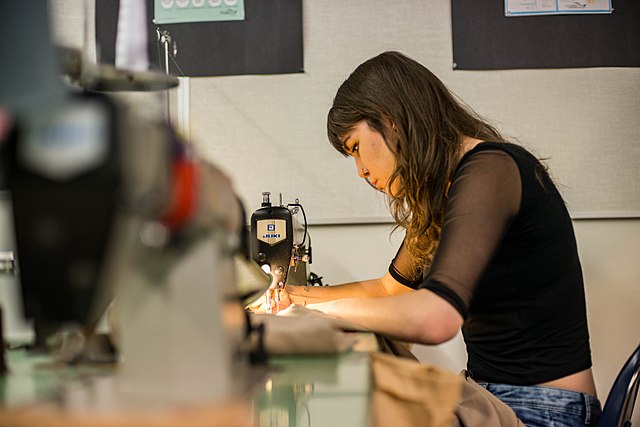This year, a Greensboro community is expected to have access to a grocery store after 15 years of existing as a food desert.
Since Winn-Dixie shipped out of the shopping center on Phillips Avenue in Northeast Greensboro in 1990, this predominantly black, low income community attempted to attract a store to their area with no success. But in 2012, the community decided to start the Renaissance Community Cooperative food store in the center Winn-Dixie had inhabited earlier.
With the initiative of the community and other partners, this model of solving the problem of living in a food desert is working for the Phillips Avenue community.
“(The community) is not waiting on the generosity of others,” said first-year Arundhati Krishnan. “I think this situation shows incredible innovation of the community that has done this.”
Since 2012, the community has partnered with Fund For Democratic Communities and has received financial support from other partners to move their idea from dream, to plan then action. As organizations have learned of the RCC’s community plans, support has snowballed into something massive — lenders all over the country are striving to donate to the RCC.
The media attention has not only attracted unwavering support from donors. Other communities living in food deserts are looking at the RCC as an example of an innovative way of gaining access to healthy food.
“I think once an organization has already started and has done some problem solving and figuring out the best practices, then others won’t have to reinvent the wheel,” said senior D’vorah Nadel. “But running a business is not easy. It takes a lot of work, energy and knowledge.”
The RCC’s partners, like F4DC, helped locate people who had expertise in areas such as financing and management to help the community create a plan for running their store. Chelsea Yarborough, a senior and a worker-owner of the Greenleaf cooperative, believes that members of the RCC can share their knowledge and tips for success with other co-ops.
“The RCC and the Greenleaf and other co-ops in GSO should be there to support other (new) co-ops and help them get off the ground,” said Yarborough. “It is a very bottom-up movement. The network gets stronger when more people are involved with it.”
Krishnan was concerned that some communities that want to follow RCC’s example not have many local resources, like the F4DC, or nearby suppliers of healthy food.
“Some (communities in the U.S.) do not have access to good suppliers, and that could be more expensive because of things like transportation,” Krishnan said. “That could be a potential obstacle that (these communities) run into.”
In the meantime, Greensboro is currently tied as the second city in the nation with the most food insecurity. But as more co-ops like the RCC and the Greenleaf grow, the stronger the support system for new co-ops in Greensboro will be.
Krishnan, Nadel and Yarborough believe that Guilford could offer support to the RCC by supplying the co-op with food from Guilford’s farm. Guilford currently is a supplier for the Deep Roots market, another co-op in Greensboro, so it is reasonable to believe that the RCC could be a potential buyer.
Before the RCC opens, the community needs to raise $612,372 to meet their goal of $1.72 million. The RCC has received their donations from individuals in 23 different countries and partners including Self Help and the Moses Cone Health Foundation. They hope to receive $600,000 of this needed aid through support from the city of Greensboro.












